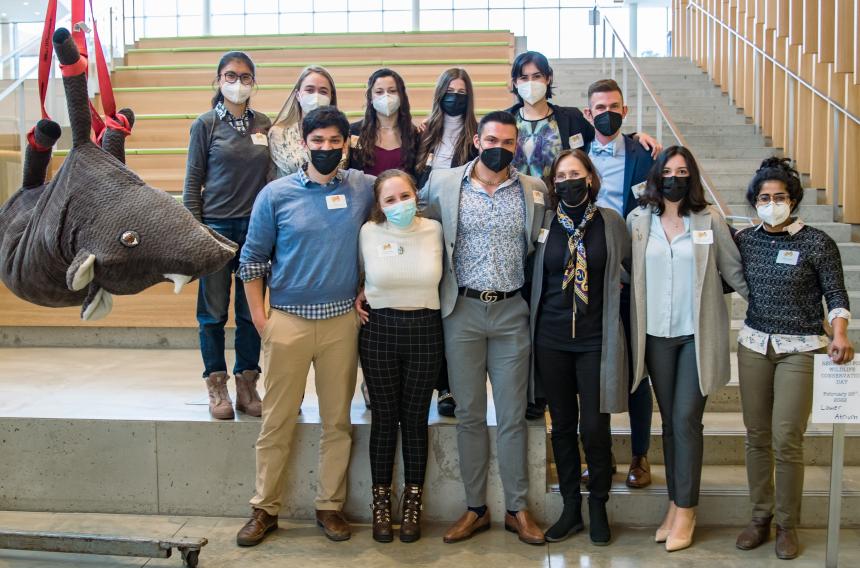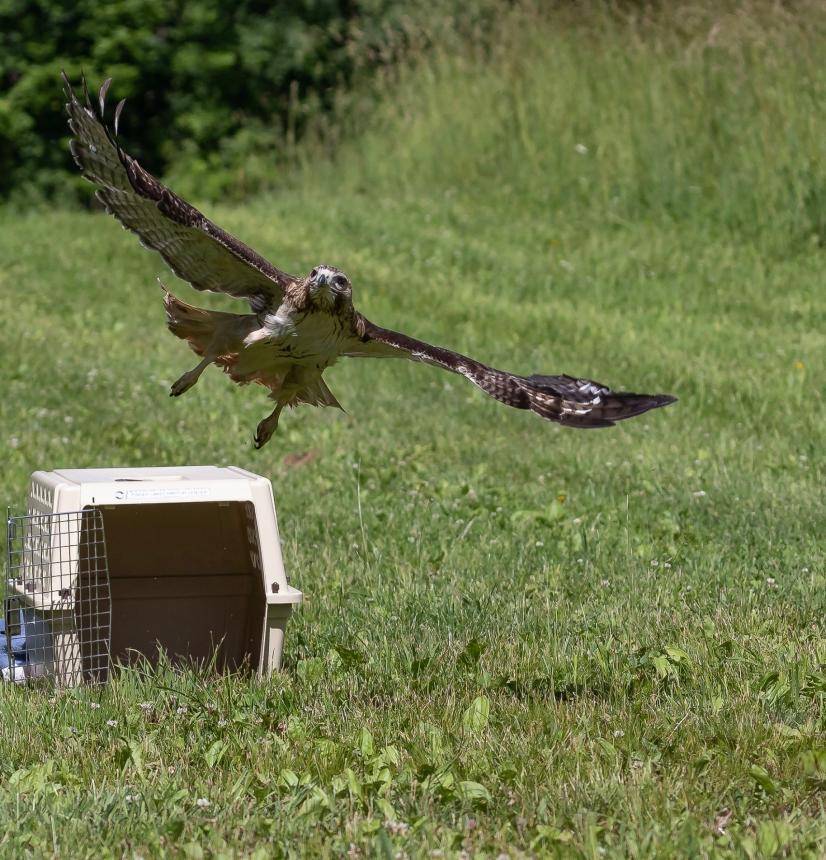In the News

News
April 05, 2022
Matt Marinkovich, DVM '14, always had a passion for wildlife but was initially unsure as to what career path might suit him best. “I always knew I wanted to do something with wildlife or something conservation related, but it took a little while to find what that niche was, whether PhD or vet school....."

March 21, 2022
Cornell’s Zoo and Wildlife Society hosted its first Wildlife Conservation Day Feb. 26, a one-day symposium devoted to education and training for students with an interest in non-domestic species.

Blog
March 14, 2022
Cornell veterinary student Loren Lassiter, DVM '22, practices unique care in her wildlife preceptorship at the Fossil Rim Wildlife Center.

Blog
February 14, 2022
Cornell veterinary student Carolina Baquerizo, DVM '24, describes her experience completing a summer externship in wildlife medicine at the South-East Zoo Alliance for Reproduction and Conservation (SEZARC).

For Your Information
October 07, 2021
By analyzing case records, Cornell researchers helped clarify and quantify the causes for wildlife rehabilitation, species involved, and treatment outcomes.

June 23, 2021
The Cornell Wildlife Health Center is proud to celebrate some of the latest achievements of recent graduates from the Cornell University College of Veterinary Medicine pursuing career paths in wildlife conservation and One Health.

May 21, 2021
The third Friday of May is Endangered Species Day. Primarily as a result of human activities, our planet’s biodiversity is shrinking at an unprecedented rate. The Cornell Wildlife Health Center is proud to support a diverse range of species and ecosystems through our work.

April 19, 2021
Construction is underway to build a new, state-of-the-art animal health center at Syracuse’s Rosamond Gifford Zoo. The Friends of the Rosamond Gifford Zoo has launched a $1.1 million dollar capital campaign to raise money for new diagnostic and treatment equipment. The zoo will continue its partnership with Cornell University College of Veterinary Medicine, by bringing Cornell veterinarians to practice at the zoo and allowing residents, interns, and students to get hands-on experience

Blog
April 08, 2021
As an aspiring veterinarian interested in zoological medicine, I have tried my best to take advantage of all zoo and wildlife opportunities available to me. When I think about the kind of veterinary career I want to have, it is one where I can combine my interests in conservation, international travel and cultural immersion....
March 24, 2021
Research analyzing the prevalence of dental diseases in captive jaguars in Belize was recently published by Lindsey Schneider, DVM ’13, and a team of veterinary colleagues in the Journal of Zoo and Wildlife Medicine. Dr. Schneider completed the research during her residency in Dentistry and Oral Surgery at the Cornell University College of Veterinary Medicine.
